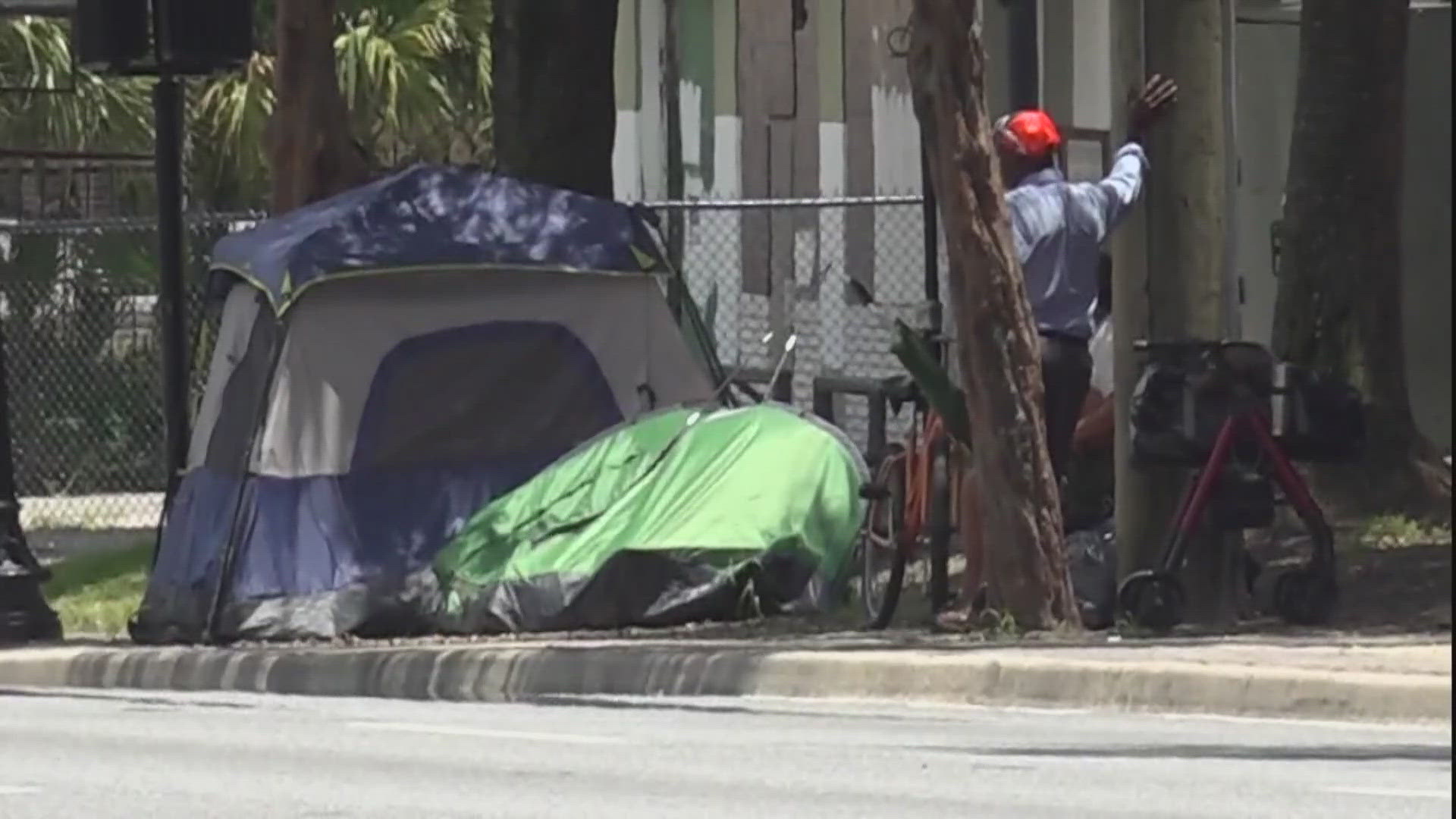JACKSONVILLE, Fla. — Jacksonville leaders are coming up with a plan to address a new state law that will make it illegal to sleep outside starting Oct. 1. The law also gives citizens the right to sue the city if they feel the law is not being enforced.
The new state law means it will be illegal to sleep on sidewalks, in parks, or other public places. According to the law, cities will need to create areas for the homeless to sleep.
“We are mandated by the state to have every homeless person off the streets by October 1," Jacksonville Mayor Donna Deegan, said.
Deegan created a 12-step plan to achieve this goal. It includes increasing the number of beds at current shelters and contracting with hotels for more space. The law allows cities to create temporary shelters and Deegan plans to build a shelter village that will add 100 beds through container housing.
Deegan says one of the points that’s most important to her is developing services for the homeless to help them find permanent housing or employment.
“We don't want to put them in tents, we'd like to put them in housing where they can have a dignified existence as they are then availing themselves of services that we're providing," said Deegan.
Under the law, titled "Unauthorized Public Camping and Public Sleeping’," starting Jan. 1, 2025, people will be allowed to sue municipalities if they feel the public sleeping and camping ban is not being enforced.
Legal expert Khalil Farah with Farah and Farah explains that filing a lawsuit will require proof of non-compliance.
“If you notify the city, 'Hey, some guy is sleeping outside of my business,' and the city comes and looks and no one's there and the city comes again and nobody's there. I don't think the person is going to have the right to file that lawsuit. Just because at that point, I think the city's probably taken reasonable steps," Khalil Farah, an attorney with Farah & Farah, said.
And if a civil lawsuit was to be successful, the city would only have to pay reasonable expenses.
"So for example, if I'm a bar restaurant owner, and I think a bunch of homeless people are sleeping outside my business, and it's causing me to lose business, can I sue the city for that decrease in revenue? I don't think so. I think the way the statute is written, you're going to be limited to only incurring actual expenses related to the lawsuit itself," Farah said.
Deegan has already started to implement steps from her 12-point plan to comply with the law before the Oct.1 deadline.

